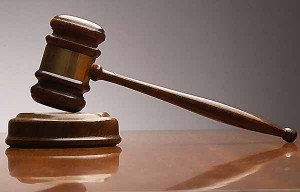Reforming the system of Judicial Appointments in Pakistan
Wednesday, October 19th, 2011 6:48:06 by Syed Hassan Bokhari
Reforming the system of Judicial Appointments in Pakistan
Lately, Pakistan’s justice system has suffered due to the low number of judges sitting in the High Courts and Supreme Court. The dispensing of justice to the public has slowed down due to the lack of an appropriate number of justices sitting in these honourable courts.
The problem our country has been witnessing lately is the recommendation and appointment process of the judges in the judiciary. Looking at a number of examples from around the world, the President of the country is the sole decider on who should be able to appoint people to the rank of judges according to his will and cannot terminate them without proper reason.
The United States of America has the same process, by which candidates are picked by the President himself and are confirmed by the US Senate, making the whole process parliamentary without the use of the current judiciary getting involved in any such matters, because in the end, public representation is always supreme.
Unfortunately, in Pakistan, it is the other way around. The Supreme Court has given itself the powers to appoint and dispose of judges according to the will of the chief justice, which is not the case in any such country. Especially chief justices, they are mostly used by the President himself in taking advice on who a good candidate would be, but in Pakistan, a new term has arisen, “Meaningful Advice”.
This meaningful advice is found nowhere in any English dictionary and is regarded by the Pakistan judiciary as such advice given by the chief justice of Pakistan to the Prime Minister and President to be binding on the two, which is entirely absurd.
Literally, advice means an opinion or recommendation offered as a guide to action or conduct, but nowhere does it mean binding. Such advice is also given by lawyers, which is in no way binding, but can also be considered to be the best choice, which is not always the situation.
The person that is taking the advice has the choice to act upon it or not, it depends entirely on him, which should be the case in Pakistan as well. Words must not be manipulated in order to undermine the government’s authority.
Judges of the High Court and Supreme Court should and must be appointed by the President of Pakistan, not only on the basis of ethics and proper code of conduct, but also because it has shown to be a successful model wherever it is implemented.
After the President’s appointment, a parliamentary committee can also be selected to verify the President’s decision in a public viewing likewise of the Senate hearings in the USA, making the whole process a lot more beneficial and transparent.
Short URL: https://www.newspakistan.pk/?p=723

















